I Dig Sports
'Sport was a big release' - how autism helps Brooksby on court
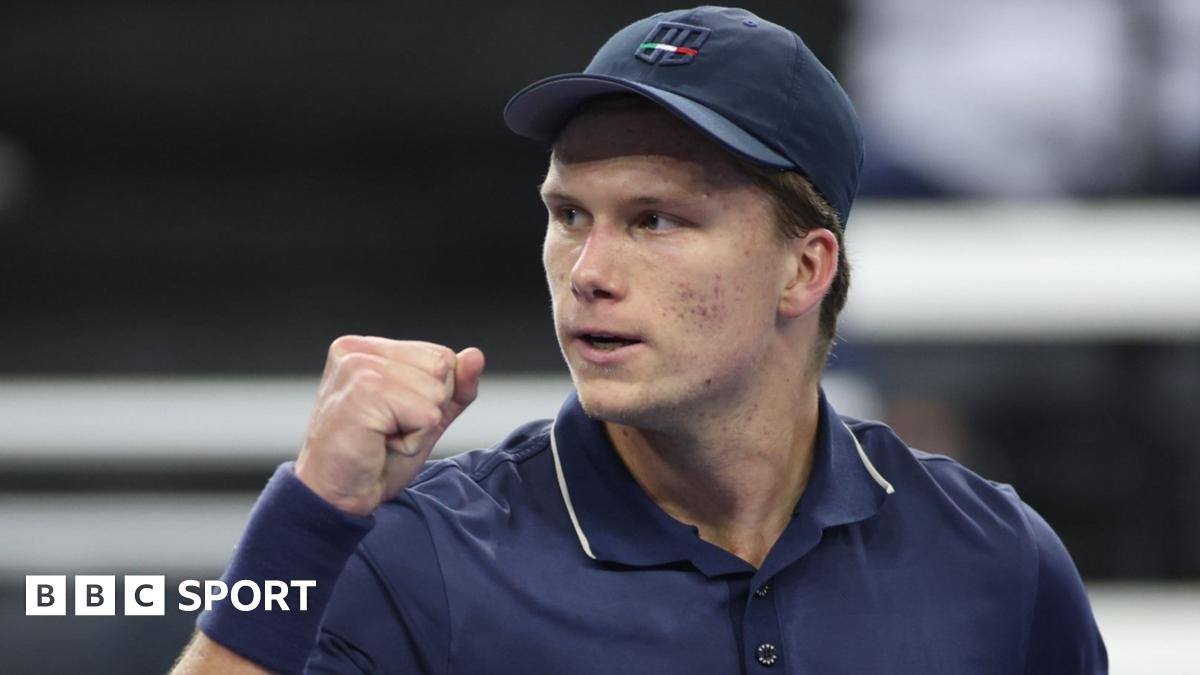
Six days before Christmas, Jenson Brooksby took to social media to share something he had "kept quiet for his entire life".
The 24-year-old American revealed he had been diagnosed on the severe end of the autism spectrum as a young child, and was non-verbal until the age of four.
The decision to go public had not been taken lightly, but was driven by a desire to help families living the same experience and any future professionals with autism., external
"My whole life with my parents, it wasn't something you are very comfortable sharing because there could be consequences - especially when I was younger," Brooksby told BBC Sport.
"But I've learned as I've grown up that even with people close to me, the response is very casual and not much is thought about it.
"I think my desire to be able to help other people with it in certain scenarios - say, if they are trying to become a professional player - was bigger than any negative outcome I could have thought of.
"I really hope that future players, whether they are vocal about it or not, they at least know it's OK for them to struggle with it and hopefully be able to explain why."
Brooksby can remember some of the intensive therapy he received, starting aged two and at times up to 40 hours a week.
An immense gratitude to his parents is clear as he explains how they devoted their time and resources to help him speak.
For Brooksby, sport was a release. Tennis - along with basketball, swimming and athletics - came into his life aged four, with lessons following a few years later.
"Sport was a big release for me. If I sit for a long time I can have a lot of energy bottled up, and so being a very active kid really let it out," he said.
"I always wanted to train to try to be good at something. Even at that age, I think I had that mindset of competing and to be good at something."
I'm either labelled a robot or hysterical - Swiatek
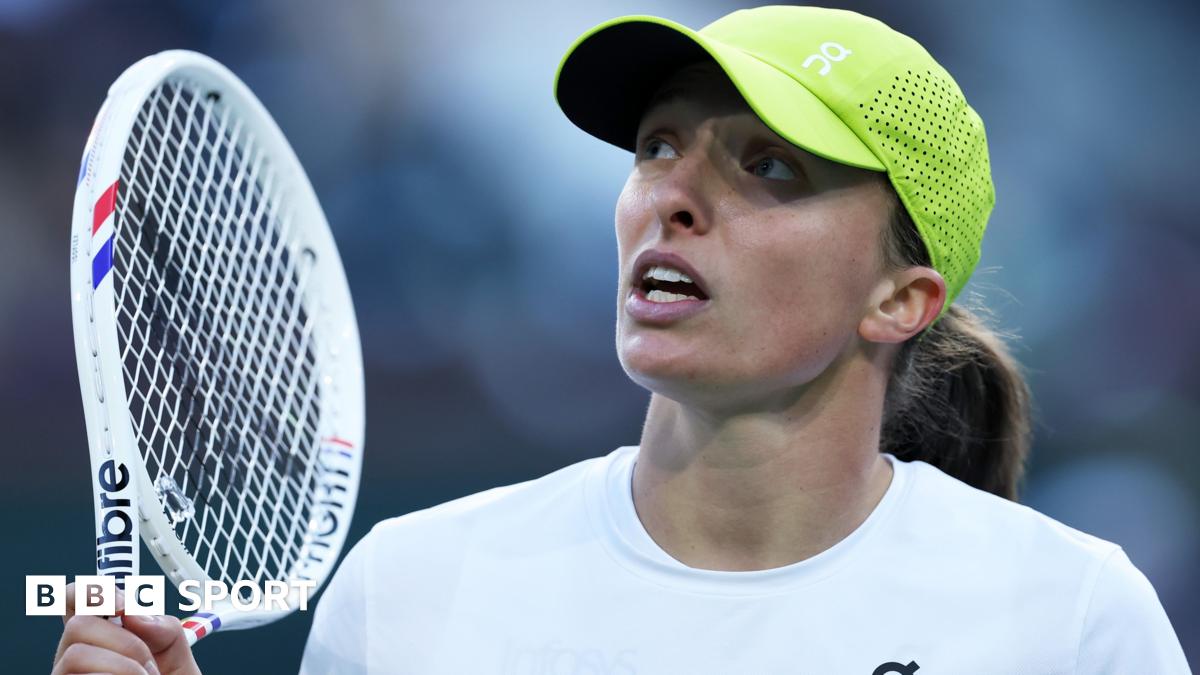
Swiatek has not reached a final this year, with her last title coming at the French Open last June.
She added she was "not comfortable explaining myself" but wanted to share her perspective "to stop the speculation and baseless theories".
"When I'm highly focused and don't show many emotions on court, I'm called a robot, my attitude labelled as inhuman," she said.
"Now that I'm more expressive, showing feelings or struggling internally, I'm suddenly labelled immature or hysterical.
"That's not a healthy standard especially considering that just six months ago, I felt my career was hanging by a thread, spent three weeks crying daily, and didn't want to step on the court.
"Today, after everything I've been through, I'm still processing and coming to terms with those experiences."
Swiatek tested positive for the heart medication trimetazidine (TMZ) in August, when she was world number one.
The International Tennis Integrity Agency (ITIA) accepted the test result was caused by contamination.
She missed three tournaments during her ban, with Aryna Sabalenka ultimately replacing her at the top of the world rankings in October.
Swiatek will be the second seed at the Miami Open, which begins on Tuesday.
Lions team: Russell fly-half, Itoje captain & Murray at 15?

Former Scotland captain Barclay has selected a team including five Englishmen, five Scotsmen, four Irishmen and one Welshman.
In total, he has made seven alterations from the side he picked after round one.
England's dominance in the set-piece has resulted in props Ellis Genge and Will Stuart replacing Ireland's Andrew Porter and Scotland's Zander Fagerson, the latter missing out despite making the fourth-highest number of carries (57) in the tournament.
"The main change is Stuart and Genge," said Barclay.
"[England produced] The best scrummaging performance throughout the championship. Stuart has such a low penalty count and gets through so much good work, and it's the same for Genge - the nuts and bolts of his game are superb."
The engine room in the second row remains the same, with Barclay suggesting England captain Maro Itoje is a Lions skipper in waiting.
In the back row, Barclay has named Jac Morgan in his side despite Wales' run of 17 consecutive defeats and a second Wooden Spoon in as many years.
Morgan made a tournament high 88 tackles, while only Itoje arrived at more rucks on both sides of the ball.
The Welshman replaces Scotland's Rory Darge, who made more cleanouts than any other player (45) but Barclay says Morgan could reach greater heights in the Lions set-up.
"I had Rory Darge in the back row but I think he has fallen off slightly. Jac Morgan has played in a Wales side that is struggling, but he has stood out. Imagine him with the quality of [Lions] players and that coaching structure around him."
In the backs, Barclay selected five Scotsmen, including Finn Russell at fly-half.
Centre Sione Tuipulotu was ruled out of the tournament with a pectoral injury but Barclay has opted for his countryman, who is expected to return before the end of the season, while England's Ollie Lawrence has dropped out of contention after suffering an unfortunate Achilles rupture.
Barclay has picked Tuipulotu at inside centre, outside Russell and inside Huw Jones in an all-Scottish midfield, with Blair Kinghorn selected at full-back and Duhan van der Merwe on the wing.
Kuhnemann five trumps Konstas' 68 as Tasmania trounce NSW

Tasmania 331 and 383 for 4 dec (Weatherald 145, Jewell 100*, Silk 65, Ward 52) beat New South Wales 186 and 202 (Konstas 68, Nikitaras 51, Kuhnemann 5-49) by 326 runs
NSW's innings never got going again after that, with the visitors all out for 202 just after 6.30pm local in the day-night fixture, 327 runs short of their target.
Test spinner Kuhnemann was chief destroyer after Bell's early efforts, removing of his fellow Sri Lanka tourist Konstas to begin his eighth five-wicket haul in first-class cricket.
Konstas (68) did his best to provide resistance with a second half-century since being overlooked for game time on the Test tour of Sri Lanka. The teenager showed off his creative side, reverse-scooping Bell to the boundary for four but was out only three overs later.
Bell was again at the centre of the action to remove Konstas, having earlier enticed Nikitaras into edging to flying wicketkeeper Jake Doran. Konstas holed out to Bell on the boundary rope at deep mid-wicket trying to slog sweep Kuhnemann, but still finished as the innings' top scorer.
Bowling allrounder Sean Abbott was the only batter to provide any resistance after that as Kuhnemann wreaked havoc.
Kuhnemann decimated the NSW middle-order, clean bowling Josh Philippe through the gate before Ollie Davies skied him to Tim Ward.
Kerr says Curry 'exhausted,' could sit vs. Bucks
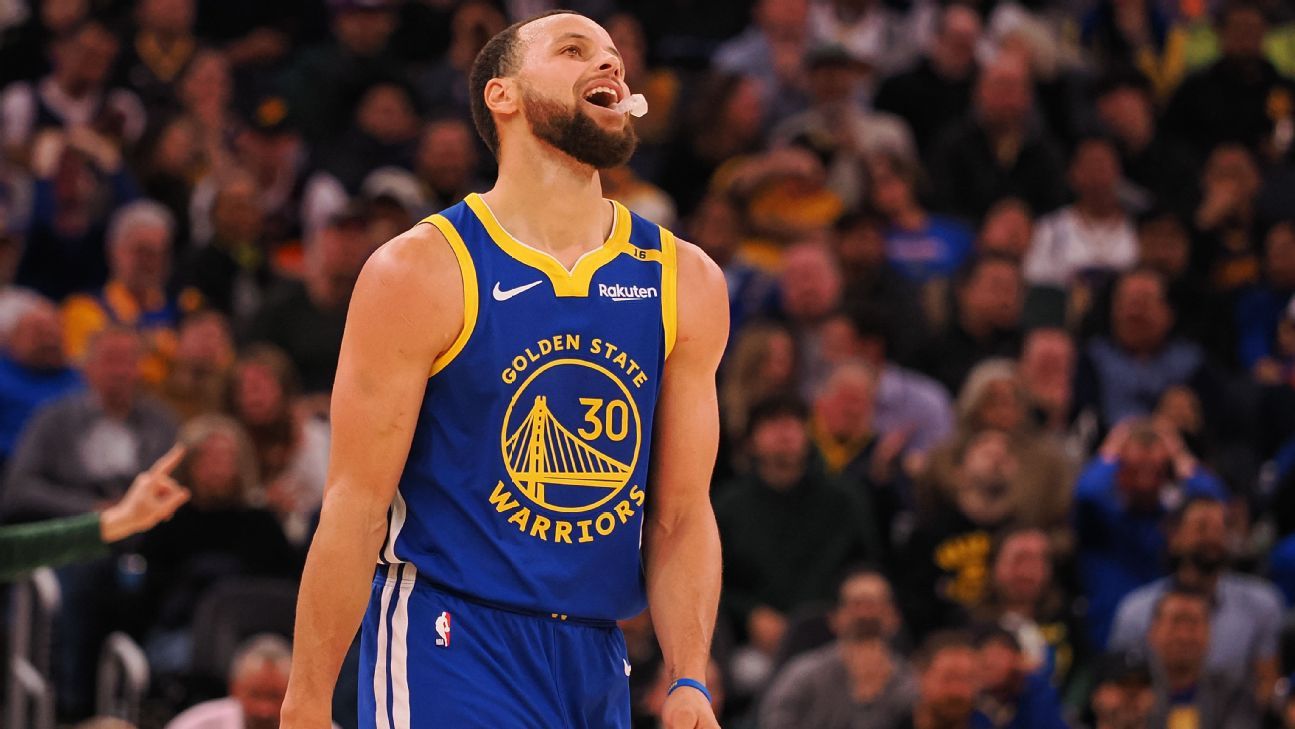
SAN FRANCISCO -- After watching Stephen Curry commit seven turnovers and miss 10 of 14 3-point attempts Monday night against an undermanned Denver Nuggets team, Golden State Warriors coach Steve Kerr acknowledged he needs to find some rest for his superstar point guard.
Curry finished with 20 points and 7 assists, but the Nuggets were still able to halt Golden State's seven-game win streak with a 114-105 victory despite playing without Nikola Jokic, Jamal Murray and Christian Braun.
Curry was listed as questionable entering the game because of a right lower back strain. Kerr said the Warriors will have to consider "potentially" resting Curry on Tuesday against Milwaukee, the second night of a back-to-back.
"He's tired," Kerr said after Curry logged 35 minutes against Denver. "Steph's been carrying us for a month. He's been amazing. He's tired, so we got to get him some rest. Just you can see it. He doesn't have his energy right now."
Curry said his back first started bothering him in pregame warmups Thursday, before the Warriors played the Sacramento Kings. During that win, Curry became the first player to reach 4,000 career 3-pointers.
Curry was averaging 26.6 points and 6.6 assists in 33.5 minutes in March entering play Monday.
"I feel fine," Curry said when asked about being tired. "Obviously I didn't play great at all, so everybody including Coach is going to try to figure out why. Mostly the turnovers, dumb plays all night, but I had a really good run. You expect to have a level of consistency and whatnot, so when it doesn't happen it becomes a question.
"I feel like [it is] more so my back I was dealing with the last couple of days, see how that responds tomorrow, but otherwise feel pretty solid."
Jimmy Butler, who lost for just the second time in the 16 games he has played in with the Warriors, said he and the team need to do a better job of helping Curry.
"It's OK to be tired, and that's on myself and on us as a unit to pick up the slack for him," said Butler, who had 23 points, 8 rebound and 6 assists. "Everybody wants to think that he is superhuman. He is not. He is our leader, and we must protect him at all times."
Kerr said he will huddle with Rick Celebrini, the Warriors' VP of player health and performance, to determine Curry's status against Milwaukee.
"He's exhausted right now," Kerr said. "So we've got to absolutely consider giving him a night and getting him rejuvenated for the sake of him and the remainder of our games. But we'll see. I think he's been tired the last few games, and so we've got to find a way to get him his juice back."
Westbrook 'a wolf,' fuels Nuggets' improbable win
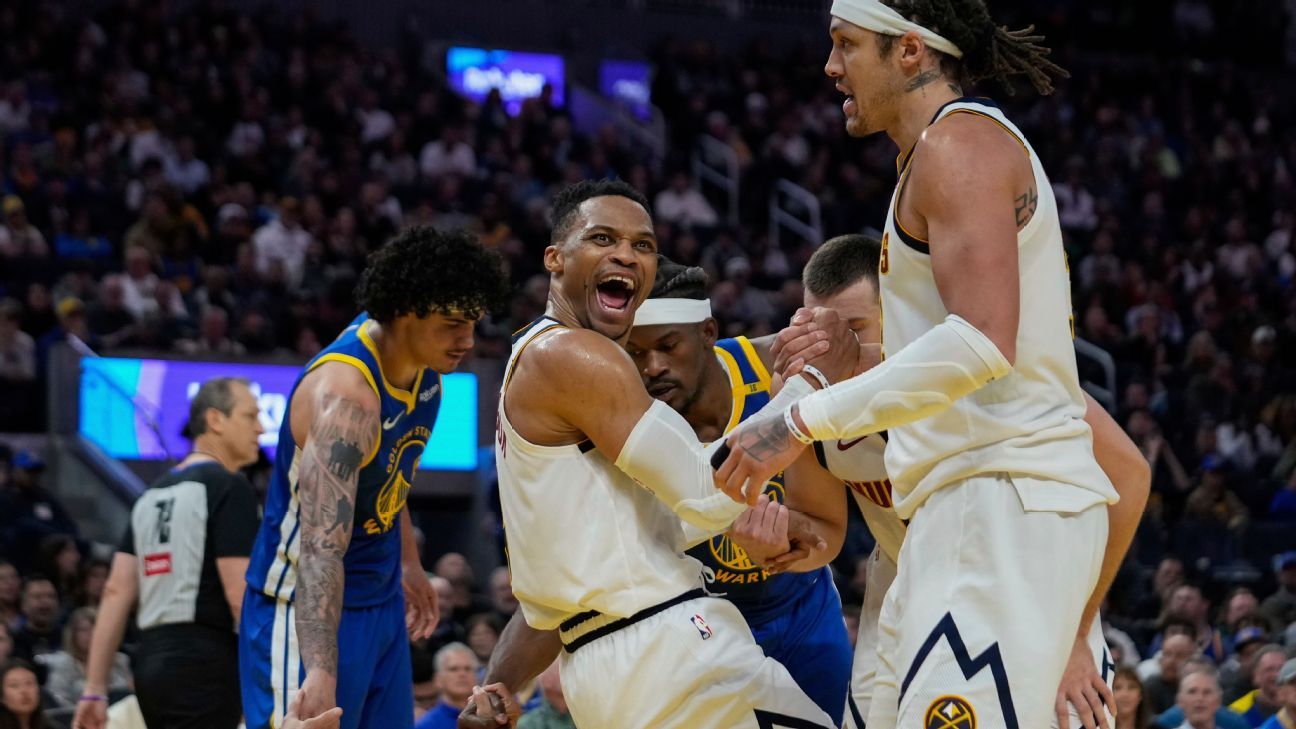
SAN FRANCISCO -- Denver Nuggets coach Michael Malone considered Monday's road matchup against the Golden State Warriors to be the kind of game that reveals a lot about the psyche of players.
The Nuggets sat three starters -- three-time MVP Nikola Jokic, co-star Jamal Murray and Christian Braun -- because of nagging injuries against a Golden State team that entered the night with the NBA's longest winning streak.
"There's some guys who would think, 'Do I really feel like playing tonight?'" Malone said after the Nuggets pulled off a 114-105 win at Chase Center, citing Russell Westbrook and Aaron Gordon as obvious exceptions. "What you love about Russ, what you love about AG [is their mentality]: 'All right, well, next man up. There's more opportunity for me.'"
Gordon, who had missed three of the previous four games because of a sore calf, scored 38 points, his most in a Denver uniform. Westbrook had 12 points, 11 rebounds, 16 assists and 3 steals.
"That ain't nothing new," said Westbrook, who added to his NBA record with his 203rd career triple-double. "You've seen that from me before."
It wasn't always an artistic performance by Westbrook, who went 5-of-17 from the floor with a few air balls and committed seven turnovers, prompting Malone to crack that he nearly had a quadruple-double. But Westbrook's relentless energy and intensity set the tone for an undermanned Denver squad.
"First off, Russ is not just a dog. He's a wolf," Gordon said. "He's different. Offensively and defensively, he's always on 10, always on 12."
The Nuggets shot 16-of-24 on passes from Westbrook, according to ESPN Research. It was his 44th career triple-double with at least 15 assists, one shy of tying Hall of Famer Oscar Robertson for the most in NBA history.
With Westbrook pushing the tempo, Denver dominated the game in transition. According to Second Spectrum tracking, Denver scored 37 transition points, the second most Golden State has allowed in a game this season.
"I felt from the get-go Russ' tenacity, his intensity, what he brings every single night," Malone said. "Just being a leader in the huddles, getting on guys, uplifting guys, whatever is needed at the time. That's why Russ has been such a great addition to us all season long."
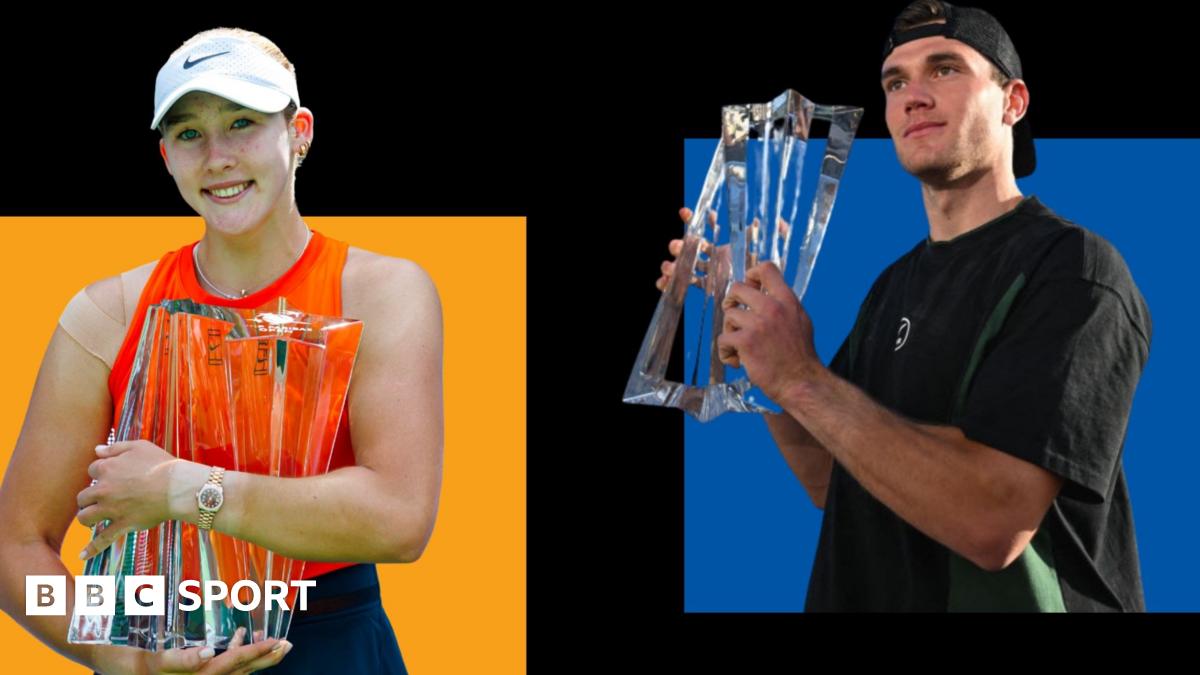
Mirra Andreeva had an important apology to make right after winning the Indian Wells title.
Looking to her coaching team, she said sorry for being "as you like to say, a little brat" before her match against world number one Aryna Sabalenka.
It's easy to forget Andreeva is just 17. She is playing with the maturity of a seasoned professional - and already cleaning up at some of the biggest tournaments on the WTA Tour.
Having become the youngest player to win a WTA 1000 event when she triumphed in Dubai last month, she continued her form in Indian Wells and lifted the trophy on Sunday with her 12th successive victory.
Impressive, right?
But her achievement is made even more remarkable by the fact she beat Iga Swiatek and Sabalenka - the world's top two players - over the weekend.
The way she regrouped after dropping the second set 6-1 to Swiatek was impressive, as was her mental fortitude after losing the first set of the final against Sabalenka.
No wonder the prodigiously talented teenager is being tipped as a future world number one - and Grand Slam champion.
Talk naturally leads to which Slam that is most likely to happen at, as it will with Britain's Jack Draper, who triumphed in the men's final.
In truth, it could be any of the four, as Andreeva possesses a skillset suited to any surface.
The Russian agrees, saying: "I like to play on clay, I like to play on hard, I like to play on grass. So I can say that all three of them are my favourites."
Getting through 'groundhog day' - how Draper became a Masters champion
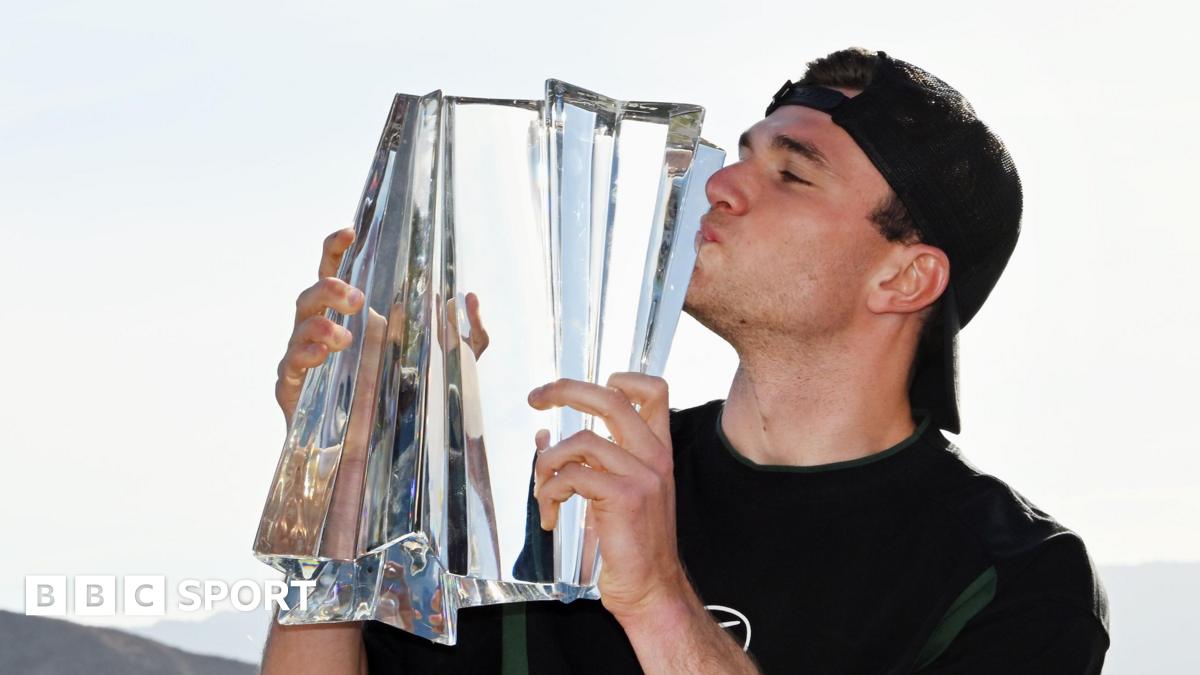
Draper's rise over the past year has been solid and steady.
His first trophy came on the Stuttgart grass in June last year, followed by an ATP 500 hard-court title in Vienna in October.
His run to the US Open semi-finals captured the attention of the wider British public, although his nerves were illustrated by vomiting on court in a defeat by eventual champion Jannik Sinner.
Draper began seeing a "breathing coach" to help solve the issue, and he pointed to the way he came through the third set against Alcaraz as an example of his improved composure.
"I had a few doubts before the Indian Wells final wondering if would feel the same things - but I didn't," he said.
"I was really strong and focused on my breathing and things I could control. That's what I was really proud of."
The next step from Masters champion is a logical one - becoming a Grand Slam champion.
Winning Indian Wells is no guarantee of future major success but as Dominic Thiem, Naomi Osaka and Bianca Andreescu have shown, coming through a 96-player field of the very best opponents is a strong indicator.
Hard courts have been Draper's most successful surface, but the next two majors are on the French Open clay-courts and Wimbledon grass.
So far he has struggled on clay, but his improved footwork should help, while the increasingly dangerous serve and groundstrokes are suited to grass-court success.
"I still feel I have a lot to prove on the clay," Draper added.
"I didn't get it going last year, but I don't see why I can't be pushing the best players on that surface.
"As for grass, I feel my game has improved massively since last year."
GB Sevens' Shekells in England Women's Six Nations squad
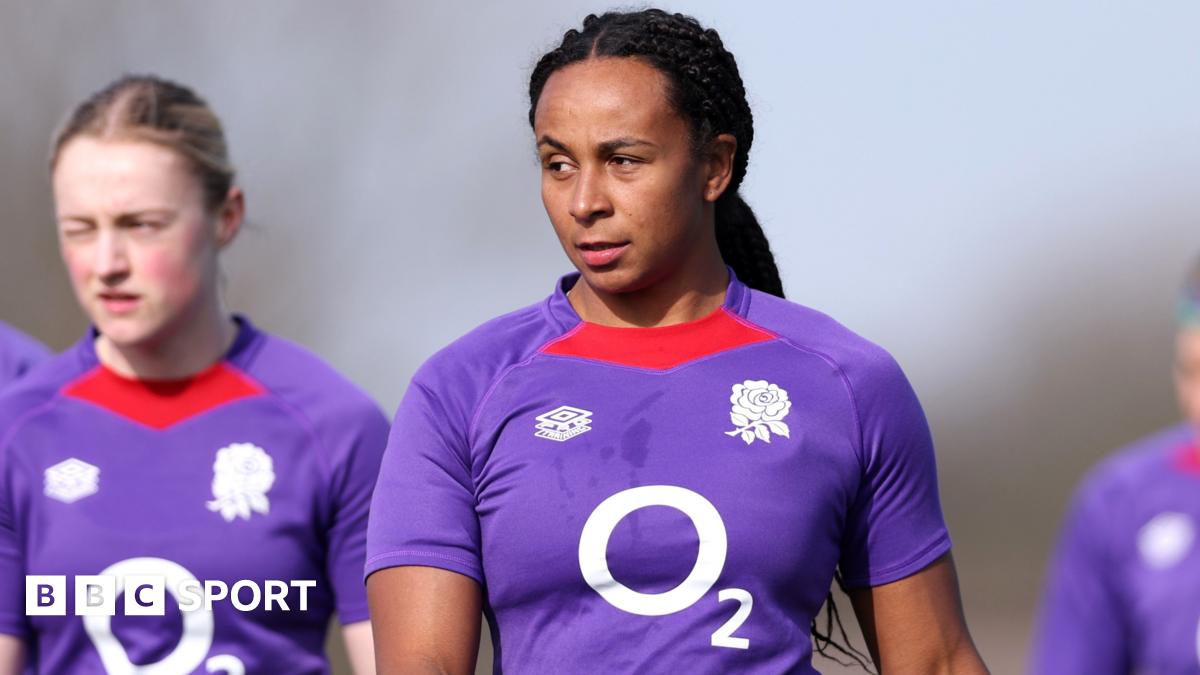
England head coach John Mitchell has included GB Sevens player Jade Shekells in his Women's Six Nations squad before their opener against Italy on Sunday.
The 2024 Paris Olympian, who recently played for GB in the Vancouver leg of the World Sevens Series in February, is uncapped in the XVs code.
Shekells is one of four players who might make their Red Roses debut in York, including Ealing's Abi Burton, Leicester's Charlotte Fray and Exeter's Flo Robinson.
Notable absences from the 37-woman squad are Harlequins hooker Connie Powell and Bristol wing Millie David.
The squad will be led for the first time by new captain Zoe Aldcroft, who helped Gloucester-Hartpury win the Premiership Women's Rugby (PWR) title for the third time in a row on Sunday.
Shekells has impressed in a handful of games for Gloucester-Hartpury at outside centre this season but has moved in and out of the Great Britain Sevens set-up. It is understood England are looking at her as a 12.
Wing Mia Venner is included after an excellent season, culminating in an impressive outing with club side Gloucester-Hartpury in the PWR final.
Venner is now in the mix for one of the most open selection battles before the Rugby World Cup in August.
The wing competition includes the comeback of Claudia MacDonald at Exeter, the return from injury of Jess Breach, Abby Dow's expected return from a hand injury and now Venner.
Harlequins hooker Connie Powell will not be able to add to her 19 caps as she is overtaken in the pecking order by Saracens' May Campbell.
Despite Saracens losing the PWR final, Campbell has had a stellar season at club level would have been near-impossible to leave out of the squad.
She has also proven her versatility with a number of appearances in the back row.
England are reigning Women's Six Nations champions and are aiming to win a seventh title in a row.
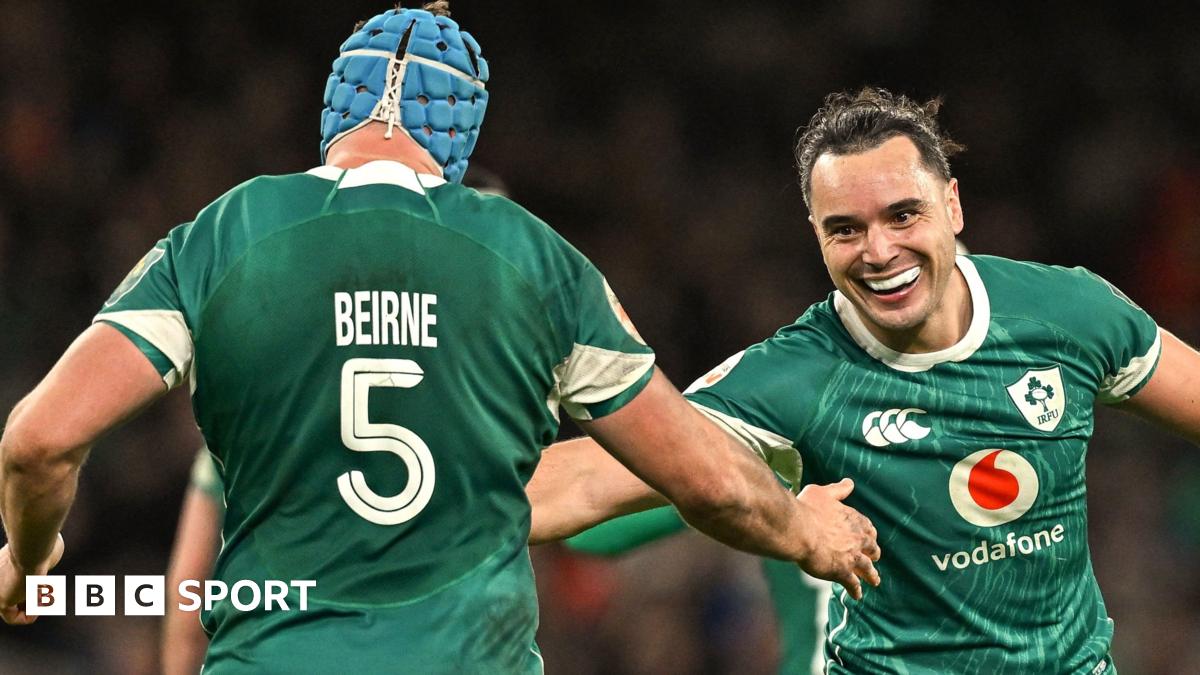
There were a couple of moments during the championship that reminded everyone of France scrum-half Antoine Dupont's fallibility.
Against Wales, he booted prime ball straight into the Stade de France stands. Against England, he juggled and dropped a relatively simple pass, with the line at his mercy.
The knee ligament injury he suffered against Ireland, buckling under Beirne's weight at the breakdown, reminded us of his mortality.
But there were plenty of glimpses of his greatness as well, the things that, for all deputy Maxime Lucu's speed of pass and territorial kicking, were lost to France in his absence.
Dupont's use of the kick-pass to circumvent a defence that has pinched in tight against France's power gives them another dimension.
In France's tournament opener, after their heavy brigade had bashed away at a stubborn Wales defence for 12 phases, Dupont picked up the ball and dawdled sideways and backwards off the back of the breakdown.
For most coaches, that is a cardinal sin. But it drew the Welsh defence forwards and when Dupont chipped to the far wing, Josh Adams was wrong-footed and unable to stop Theo Attissogbe gathering and scoring the first of 30 French tries in the tournament.
In Dupont's absence, France were even deploying the tactic in defence, with Louis Bielle-Biarrey punting wide to opposite wing Damian Penaud during an audacious exit against Ireland.
No other team deployed the tactic as accurately.















 Phone: (800) 737. 6040
Phone: (800) 737. 6040 Fax: (800) 825 5558
Fax: (800) 825 5558 Website:
Website:  Email:
Email: 






